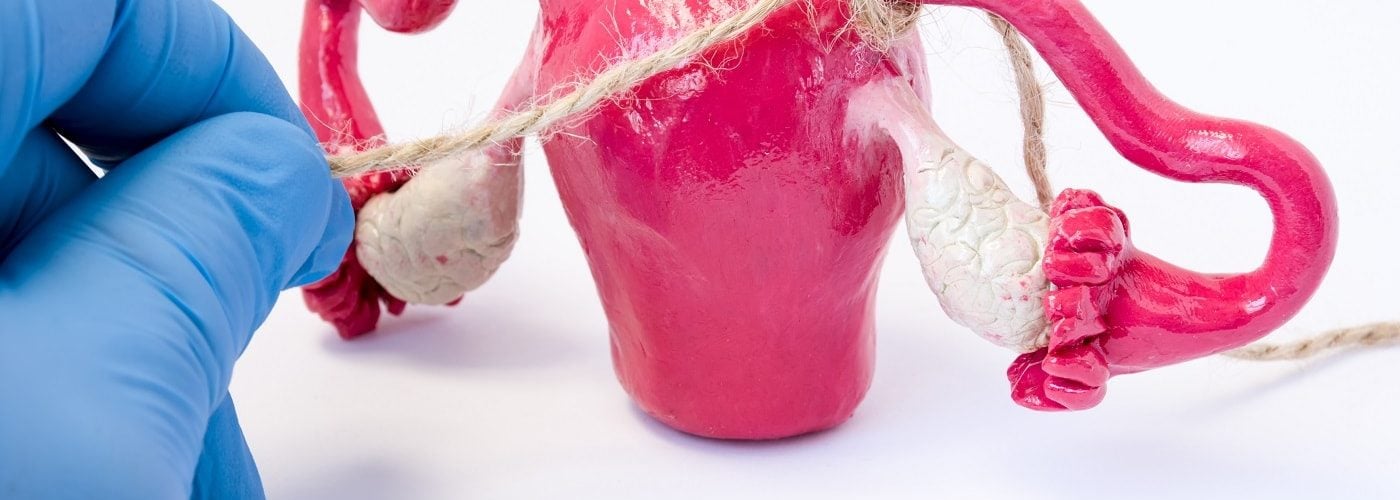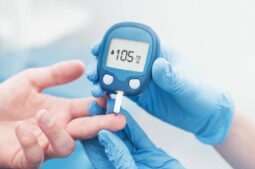
Yes, no, probably, probably not, maybe, maybe not, it depends. Why? As with many interesting questions, the answer to this one depends on what comes next, and what came before. Tubal ligation is intended to be a permanent form of contraception but very few things are perfect, and we all know that circumstances can alter and people can have a change of heart.
In this IVI article, we look at the circumstances in which pregnancy after tubal ligation is possible. We also consider some surrounding issues such as the likelihood of pregnancy 10 years after tubal ligation and how you would recognise the signs of pregnancy after tubal ligation. If you or someone close has had a tubal ligation in the expectation that it will be the end of contraceptive problems forever, and then changed their minds, here’s everything you need to know.
What is tubal ligation?
In tubal ligation, the procedure better known as having your tubes tied or female sterilisation, ‘tubal’ refers to the fallopian tubes which connect the ovaries to the uterus and ‘ligation’ means tying off. It works by preventing the egg from travelling down the fallopian tube to be met by a sperm. In this way, conception is prevented and the egg is reabsorbed harmlessly into the body. Its permanent nature means that no woman should ever be advised to have the procedure unless she is really sure that she will not ever want to become pregnant in the future.
And yet, of course unexpected circumstances can occur and a woman may decide that she would like to become pregnant after all. What should she do? Hoping for the best is always an option, but in the case of tied fallopian tubes, it is not likely to be successful.
Is spontaneous pregnancy possible after tubal ligation?
Without treatment, pregnancy after tubal ligation is unlikely but possible and there are known instances of the severed ends of the fallopian tubes growing back together, even after many years. According to one study, the possibility of this happening increases the younger the woman is at the time of the operation. The chances of this according to age are:
- Women under 28 – 5%
- Women between 28 and 33 – 2%
- Women 34 and over – 1%
Another study suggests that overall, fewer than one in 100 women will become pregnant following tubal ligation. This shows that as a form of birth control, tubal ligation, though not perfect, is highly effective. For comparison, around 9% of women taking the contraceptive pill will become pregnant. Therefore, even though pregnancy after tubal ligation is theoretically possible as some studies have shown, for those actively hoping for pregnancy, something else needs to be done. What other options are there for someone wanting to take action to restore her fertility?
Can tubal ligation be reversed surgically?
The answer to this one is also maybe. A lot depends on how the surgery was performed in the first place and whether or not the two ends of the fallopian tubes are capable of being re-joined.
An operation to re-join the tubes is more likely to be successful if rings or clips were used to seal them off. If the tube segments were burned to seal them in the procedure of electrocauterisation, the prospects are not so good. The reversal surgery is more likely to succeed if there is a good portion of healthy fallopian tube remaining, and reattachment of the ends may not be possible if too much was removed in the original surgery.
Also bear in mind that even when it is possible to re-join the tubes, pregnancy does not always follow and there is a risk that the reversal surgery will make an ectopic pregnancy more likely. If you do succeed, the signs of pregnancy after tubal ligation reversal are exactly as you would expect in any other circumstances. For some tips on what to look out for, see our article on the early signs of pregnancy.
Is there any other way around the problem?
Happily, yes. The use of in vitro fertilisation (IVF) is both figuratively and literally a way around the problem of fallopian tubes that are severed, blocked or otherwise impassable for egg and sperm. In fact, it is the fertility treatment recommended for women whose fallopian tubes are completely absent or blocked, whether by design as with tubal ligation, by disease such as severe endometriosis, or by accidental injury through surgery or other trauma. Without IVF, these women would have no prospect at all of becoming pregnant. Why are we so sure of this aspect of the question?
IVF after tubal ligation
The focus of attention with the well-known IVF technique tends to be that the eggs are fertilised in the laboratory and that one of the resulting embryos is transferred back to the womb of the female patient. It’s easy to overlook another key aspect of the process, which is that it bypasses the fallopian tubes altogether.
In IVF, hormonal medication stimulates the ovaries to produce multiple eggs which, when they have reached the desired size and number, are taken directly from their follicles in the ovaries and from there to the laboratory. The fallopian tubes are not part of the story. With IVF, the tubes are not necessary for egg and sperm to meet in order for fertilisation to take place, and non-functioning fallopian tubes are no hindrance to a successful pregnancy and childbirth. For women who have had a tubal ligation, there are a few implications of this route to pregnancy that they should be aware of.
- IVF does not restore fertility and the fallopian tubes remain severed. This means that if another pregnancy is desired, the treatment would need to be repeated unless there were enough good quality embryos resulting from the first treatment, which is perfectly likely. These can be stored and used in future if required, removing the need for the woman to go through the ovarian stimulation part of IVF again.
- On the other hand, since the tubal ligation remains in place, the patient will not have any contraceptive concerns after completing her family.
Contacting IVI
Is pregnancy possible after tubal ligation? With IVF, yes! The prospects are excellent. If you’d like to know more, or make an appointment, get in touch with us at IVI.





Comments are closed here.